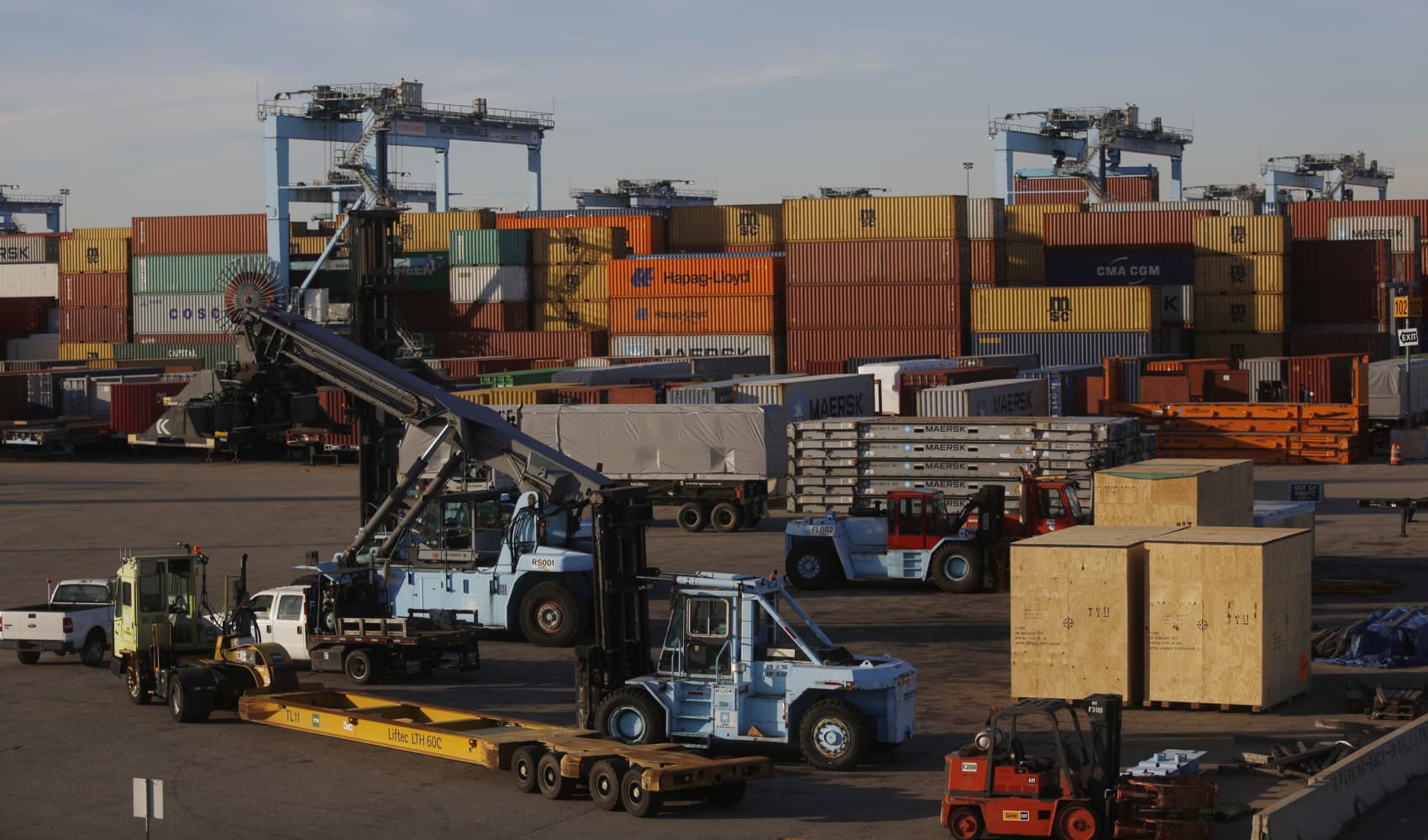With the first dockworker strike on the east coast in almost 50 years now underway, experts and consumers in the Philadelphia area and beyond are preparing for the possible impact.
The International Longshoremen's Association (ILA) said Monday that its wage demands were still not being met and that its 85,000 members, “joined in solidarity by tens of thousands of dockworkers and maritime workers around the world," would hit the picket lines at 12:01 a.m. on Tuesday, Oct. 1, and strike at all Atlantic and Gulf coast ports from Maine to Texas.
The dockworkers then began striking shortly after midnight.
The ILA is North America's largest longshoremen's union. The union said in a statement sent to the press on Monday morning that the U.S. Maritime Alliance (USMX) "continues to block the path toward a settlement on a new Master Contract by refusing ILA's demands for a fair and decent contract and seems intent on causing a strike at all ports from Maine to Texas beginning in almost 12 hours."
Get top local stories in Philly delivered to you every morning. Sign up for NBC Philadelphia's News Headlines newsletter.
Looming dockworker strike
The union has said they want higher wages as well as their jobs protected from artificial intelligence and automated machines.
Approximately 50,000 ILA union members work at the ports of Boston, New York/New Jersey, Philadelphia, Wilmington, North Carolina, Baltimore, Norfolk, Virginia, Charleston, South Carolina, Savannah, Georgia, Jacksonville, Florida, Tampa, Florida, Miami, New Orleans, Mobile, Alabama, and Houston.
What are the issues in the dockworkers strike?
The International Longshoremen’s Association is demanding significantly higher wages and a total ban on the automation of cranes, gates and container-moving trucks that are used in the loading or unloading of freight at 36 U.S. ports. Those ports handle roughly half of the nations’ cargo from ships.
The contract between the ILA and the United States Maritime Alliance, which represents the ports, expired Tuesday. Some progress was reported in talks late Monday, but the union went on strike anyway.
The union’s opening offer was for a 77% pay raise over the six-year life of the contract, with President Harold Daggett saying it’s necessary to make up for inflation and years of small raises. ILA members make a base salary of about $81,000 per year, but some can pull in over $200,000 annually with large amounts of overtime.
Monday evening, the alliance said it had increased its offer to 50% raises over six years, and it pledged to keep limits on automation in place from the old contract. The alliance also said its offer tripled employer contributions to retirement plans and strengthened health care options.
The impact of a port strike on the Philadelphia region
Philadelphia has one of the region’s largest ports in the country for meat and fruit.
“It was just last year that the Francis Scott Key Bridge collapsed and some things that were originally going through Baltimore, like cars, were diverted through Philly,” Dr. Kathleen Iacocca, Associate Professor of Management & Operations at Villanova University, told NBC10. “And we’ve maintained some of that demand.”
A spokesperson for the Port of Philadelphia told NBC10 on Monday they are not involved in any negotiations between the ILA and USMX. With the strike now underway however, workers with the Packer Avenue Marine Terminal, Tioga Marine Terminal and Piers 80 and 122 will likely be involved.
The strike is a concern for online shoppers as well as the holiday season approaches.
“I guess I’m going to start ordering them now so that if anything happens, the delay isn’t going to be too much affected,” Antonio Dimenza of South Jersey said. “Because there is still, what, two more months until Christmas?”
According to ImportGenius, the top companies affected by the strike are Walmart, Ikea, the Home Depot and Samsung.
"There are some factories in the U.S. that while they make their product here, obtain raw materials and different supplies from overseas," Dr. Iacocca said.
Dr. Iacocca told NBC10 that consumers won't feel the immediate impact, but prices will go up if the strike lasts longer than a month, especially for items like seafood, electronics, cars and medications.
Dr. Subodha Kumar, a supply chain expert at Temple University, also also told NBC10 that for each day of a strike, the supply chain will take three to five days to catch up.
“And if the strike goes on, let’s say, for several weeks, then they have to be ready to pay a little higher for things like bananas, cherries,” Dr. Kumar said.
For now, experts are telling shoppers to hang tight and to not panic.
“For now, just sit tight,” Dr. Iacocca said. “The worst thing we can do as consumers is start panic buying because it starts to disrupt the supply chain.”
Sign up for our Breaking newsletter to get the most urgent news stories in your inbox.



